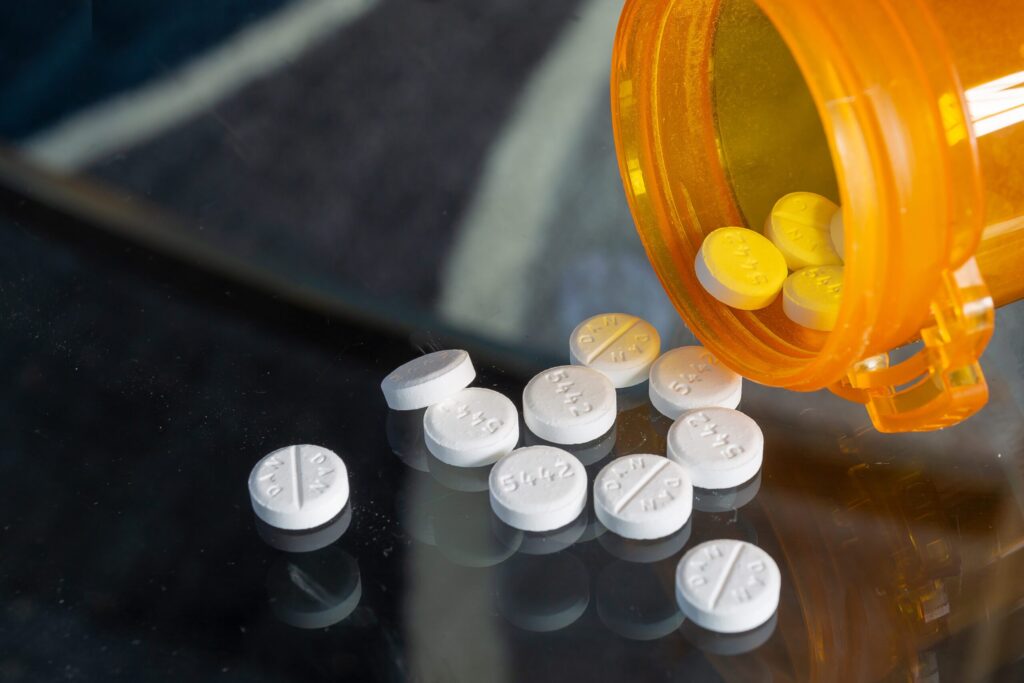Some prescription drugs are necessary to reduce chronic pain or meet your ongoing mental or physical health needs. You should continue to take these medications if your doctor tells you to do so.
For those taking prescription drugs that can be addiction-forming, it’s critical to understand the risk and how to monitor it. In some cases, you can become addicted to prescription drugs even if you are not misusing them or deviating from the recommendations set by your doctor. Everyone using these medications should know the risks.
How Common Is Prescription Drug Misuse?
Prescription drug misuse isn’t uncommon, according to the National Institute on Drug Abuse. The organization reports this data for 2020:
- 5.1% of people reported misusing prescription psychotherapeutic drugs in the previous 12 months
- 3.1% reported misusing prescription pain relievers
- 1.7% of people reported misusing prescription sedatives or tranquilizers
- 1.4% of people reported misusing benzodiazepines
- 1.3% reported misusing stimulants
Misusing these drugs doesn’t automatically mean a person has developed a substance use disorder (SUD). The organization reports that, of those over the age of 12, about 1.8% or 5 million people developed a prescription opioid use disorder, and 16,706 people died from an overdose from using prescription opioids in 2020.
Common Prescription Drugs with an Addiction Risk
Many drugs carry the risk of SUD, but most prescription drugs are safe to use as your doctor recommends. Some of the most common medications that are habit-forming include:
- Opioid painkillers including codeine, morphine, methadone, fentanyl, and oxycodone
- Anti-anxiety medications like benzos, including Ativan, Xanax, Klonopin, Halcion, and Librium
- Sleep medications such as Ambien and Sonata
- Stimulants, including amphetamines and methylphenidate
If you are taking medications like these, it’s best to speak to your doctor about your specific addiction risks.
Symptoms of Prescription Drug Addiction
As noted, most people using the medication their doctor prescribed according to the instructions given will not develop addiction. If you have any of the following symptoms, you could be at risk:
- Feeling high when using the drugs
- Thinking about, craving, or watching the clock for your next dose
- Tolerance development, which means you need to use more of the drug to get the same relief
- Changes in coordination or feeling nausea or constipation
- Difficulty with concentration
- Stealing or purchasing the medications illegally
- Running out of your prescription before you can refill it
- Trying to get prescriptions from other people
Many people will find these medications become a big focus of their lives. They are thinking about, seeking out, and even worrying about when they will get more. When this happens, it’s due to the changes in the brain brought on by addiction and dependence. Your brain becomes conditioned to seek out more of the drug because it wants to feel good. Yet, the more you use, the higher the risks are for overdose and health complications.
Why Does Addiction to Prescription Medications Occur?
Those who develop addiction don’t set out to do so. However, it’s essential to understand why addiction occurs. Some of the most common reasons for prescription drug abuse include:
- Over-prescribed medications
- Feeling you need the drug to be alert and focused, such as in preparation for the day
- To reduce appetite and lose weight
- To feel good, reduce stress, or otherwise relieve tension
- To fit in with peers
- To minimize the risk of withdrawal when not using it
Some people are more at risk for prescription drug addiction than others. This includes those who have a family history of addictive behaviors, individuals who have suffered substance use disorders to other drugs, including tobacco and alcohol, and those who simply have easy access to prescriptions.
What Do You Do If You’re Addicted to Prescription Drugs?
If you believe you could be addicted to your prescription medication, reach out to a alcohol and drug treatment center for immediate help. It’s not safe to simply stop taking these drugs. Instead, you need to work with your doctor and a specialist to help you ease off the substances in a safe manner.
At The Ranch at Dove Tree, we may recommend the use of detox for prescription drug treatment as a way to help your mind and body break the dependency it has. Over a period of time at our Lubbock, Texas, drug treatment center, we’ll be able to help you break through that dependence and create a better future. Contact us now to speak to an admissions counselor. We’re happy to answer all of your questions.












